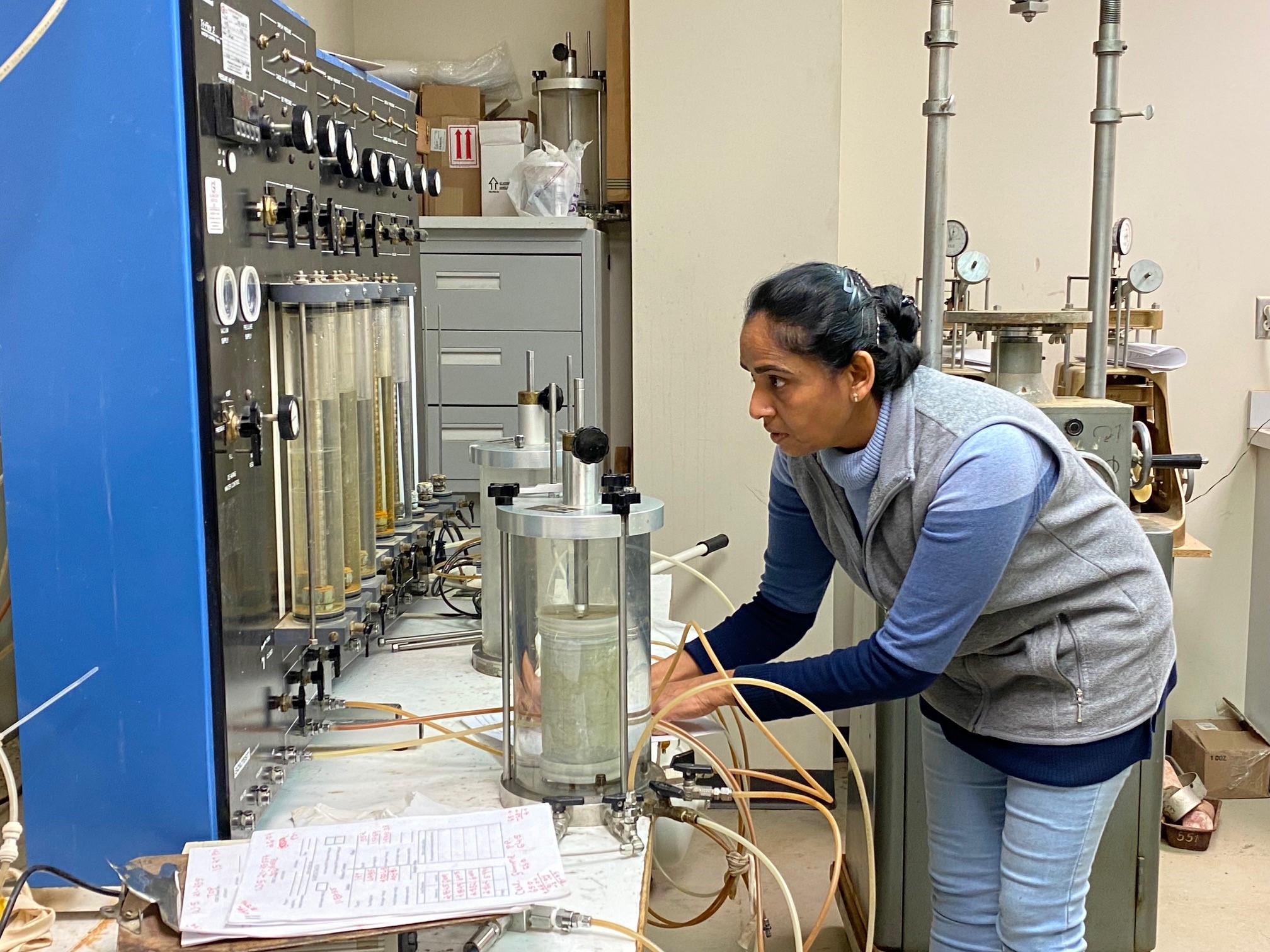Materials Laboratory Testing Technician: The Little-Known Career with Big Potential

Everyone knows about the main roles of the AEC industry (engineer, designer, and construction manager), but there is another important job that supports all building projects: materials laboratory testing technician. Though not as well known, this career choice has the potential for high earnings and steady career advancement, even though it doesn’t require a college degree.
I feel lucky to have found this career path myself. In 2008, I came to America from India and was looking for a job. EBA Engineering had just won several laboratory testing contracts and was hiring technicians to support the work. I interviewed with the lab principal, and EBA took a chance on me. EBA’s lab staff taught me about each test and helped me learn what I needed to know for certification in the field. Now, I am managing the laboratory.
I created the Q&As below to share more about this little-known career with big potential.
What does a materials laboratory testing technician do?
A materials laboratory technician tests chemicals, soils, aggregates, concrete/cement, asphalt, rock, corrosion, and other materials used on project sites. This testing is required to make sure that projects are constructed with quality materials and to stand the test of time.
Using computerized and digital testing equipment, technicians confirm laboratory testing is conducted safely, efficiently, and according to established company and project requirements. Senior technicians will also often train and mentor junior staff.
Technicians work on a wide variety of projects, such as roadways, retaining walls, pavements, bridges, stormwater, corrosion testing, and more. They also learn how to troubleshoot and maintain lab equipment.
Who would be a good fit for this career?
A career in laboratory testing would be an excellent choice for someone with the following traits and interests:
- Desire to work on multiple, different assignments.
- Aptitude in math, science, and engineering.
- Passion for learning new things.
- Ability to take initiative and proactively pursue professional growth and development.
- Excellent communication skills and attention to detail.
- Strong analytical and problem-solving skills.
How do I become a materials testing technician?
The minimum educational requirement for this job is a high school diploma, though some colleges do offer associate’s and bachelor’s degrees in relevant areas such as building/construction inspection or quality control management. While you don’t need a college degree to apply for an entry-level materials testing position, you should be prepared for plenty of on-the-job training.
Advancement in this field requires certification from various state and federal agencies, such as the American Concrete Institute (ACI) and the National Institute for Certification in Engineering Technologies (NICET). Though certification requirements vary, most involve studying to pass an exam, along with documenting your experience in the field. Typical certifications include the following:
- ACI, Aggregate Testing Technician, Level 1
- ACI, Concrete Field Testing Technician, Grade I
- ACI, Concrete Laboratory Testing Technician, Level 1
- ACI, Concrete Strength Testing Technician
- NICET, Construction Materials Testing, Asphalt Level I
- NICET, Construction Materials Testing, Asphalt Level II
I recommend that new technicians focus on lab training in standard soil testing, sampling, and processing procedures, including those of the American Society for Testing and Materials (ASTM) and the American Association of State Highway and Transportation Officials (AASHTO). After mastering those skills, you can work toward certifications, asking more experienced colleagues for help as you prepare.
What’s something about laboratory testing that most people don’t know?
Most people don’t know just how important laboratory testing is. The results of laboratory tests are critical to the safety and viability of construction projects. Beyond helping to identify risks, product defects, and issues with material applications, lab test data allows project owners, engineers, and contractors to make better, more informed decisions.
As lab testing techs, we help to make sure projects are built “by the book” to meet regulatory and design standards. Our work also helps ensure buildings and roads are sound and built to last by identifying material-related problems before failures occur. In short, materials testing is an important part of all projects!
Rita Patel is the laboratory supervisor for EBA Engineering, Inc. She can be reached at 410.504.6106 or at rita.patel@ebaengineering.com.
